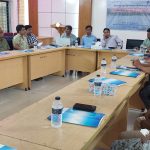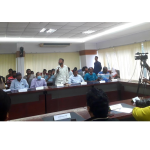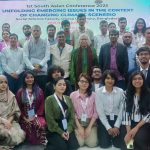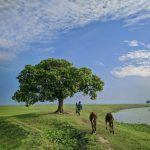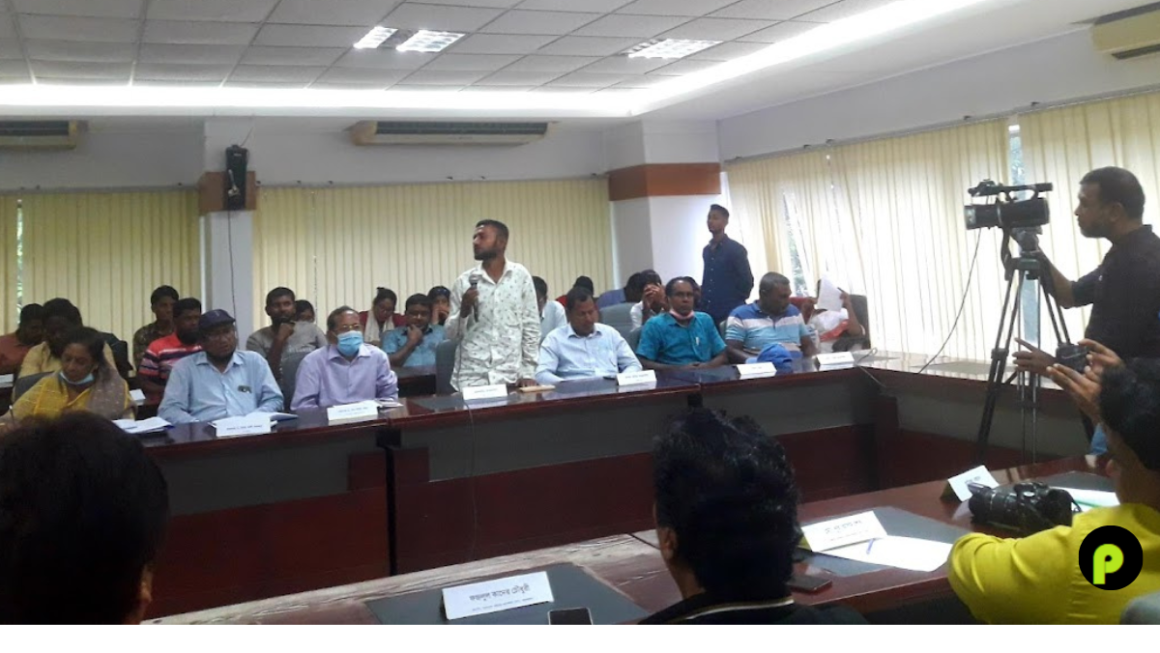“Bangladesh is a role model in climate change adaptation and disaster risk reduction globally but there are few gaps in policy and implementation”-Experts say in a policy workshop.
As Bangladesh continues to experience the catastrophic consequences of climate change, it is becoming increasingly apparent that some groups are more vulnerable than others. In adapting to and coping with the effects of climate change, persons with disabilities and women often face additional difficulties. Given that the WHO estimates that approximately 17 million Bangladeshi citizens are disabled and that gender discrimination is widespread, this issue has become a matter of critical importance. As extreme weather events such as cyclones, floods, and droughts become more frequent and intense, the needs and rights of these vulnerable groups must be incorporated into the nation’s adaptation strategies for climate change.
Center for People and Environ (CPE) with the support of the Center for Disability in Development (CDD) conducted a policy review study to identify gaps in policy and practice levels through the lens of gender and disability inclusion. A validation workshop was organized by CPE and CDD in the conference room of the Department of Disaster Management (DDM). In the workshop, Mr. Mijanur Rahman, Director General of DDM was present as Chief Guest.

Muhammad Abdur Rahaman, Director of, the Center for People and Environ (CPE) and Team Leader of the study presented the study findings in the study. Mr. Rahaman said Bangladesh is a role model all over the world in terms of climate change adaptation and disaster risk reduction but through the lens of disability and gender-inclusion, we have to work more. In his presentation, Mr. Rahaman said that in Bangladesh, disability statistics are not perfect. Though BBS and National Survey on Persons with Disabilities ( NSPD) generate disability statistics by government initiative there are disparities in statistics. He also said that we have enacted several policies, and acts on climate change and disaster risk reduction, but in terms of disability and gender inclusion, we have some gaps in policy and practice levels. In Cyclone Shelter Construction, Maintenance, and Management Policy 2011, there is no participation of women and gender which is a major barrier to gender and disability inclusion, he said. He also added that in the National Adaptation Plan of Bangladesh (2023-2050), through eight cross-cutting sectors (water resources; disaster, social safety, and security; agriculture; fisheries, aquaculture, and livestock; urban areas; ecosystems, wetlands, and biodiversity; policies and institutions; and capacity development, research, and innovation) are prioritized with gender and persons with disability inclusion, the plan missed women and persons with disability-inclusive health adaptation (accessible disaster-resilient health infrastructure, health workforce, etc. Though reproductive health is one of the major issues yet in policies, this crucial issue is not prioritized.
Md. Mijanur Rahman, DG, DDM, stated that “Disabled people are non-other than our own family, they are our brothers and sisters. So, we cannot but have to integrate and develop disable friendly infrastructures”. Healso added that Public Private Partnership (PPP) is necessary for effective preparedness for disasters. “Disaster is not a single government work. Everybody should be aware of the disasters and proper safety training for persons with disability (PWD) and their families should be arranged. A holistic approach should be integrated into all sectors, public and private, which will reduce the obstacle for the person with disabilities”.

Syed Ashraf, CMS, DDM mentioned that “Some of the cyclone shelters have developed the accessibility for the person with disability people but now it is necessary to develop or redesign all cyclone shelters with universal infrastructure for the person with multiple disabilities.”
M.A. Halim, the Director, of BDRCS, mentioned the database regarding persons with disability, the national database covers the number of people with disability, but it does not cover the type of disabilities and its quantitative segregations, which is majorly required for all the pillars starting from planning to response and recovery. �
The session discussed several aspects of climate change inclusion of disability and gender with several pros and cons along with their gaps, following the path of this discussion several policies and acts brought forth, Bangladesh Climate Change Strategy and Action Plan (BCCSAP) 2009, Cyclone Shelter Construction Management and Maintenance Act 2011, National Survey on Persons with Disabilities (NSPD) 2019, Standing Orders on Disaster (SOD) 2019, Mujib Climate Prosperity Plan Decade 2030, National Adaptation Plan (NAP) and others. The discussion also praised the latest Eight Five Year Plan (8FYP) 2021-2025, which addressed a lot of the previous gaps.
Netai Chandra Dey Sarker, Director (MIM), DDM, mentioned that a lot of policies, laws, and acts were taken, but mentioned their proper implementation.
“We should focus on that we have already ought to take several aspects in inclusion, but we have yet to complete the statements made with proper implementation”.
The workshop concluded with a message emphasizing the significance of awareness and preparedness to enhance resilience against the effects of climate change-induced disasters. The efforts of CPE, CDD, and other organizations to raise awareness and address the gaps are essential for the development of a sustainable and inclusive future for climate change inclusion with disabilities and gender equality in Bangladesh. The primary objective of the workshop is to emphasize the significance of Gender and Disability inclusion.
Md. Abdullah Al-Mamun, (Joint Secretary), Director (Admin), DDM; A.H.M. Noman Khan, Executive Director, CDD; Nazmul Bari, Director, CDD; Syed Ashraf, CMS, DDM, and some renowned experts also provided their opinion in the workshop.


